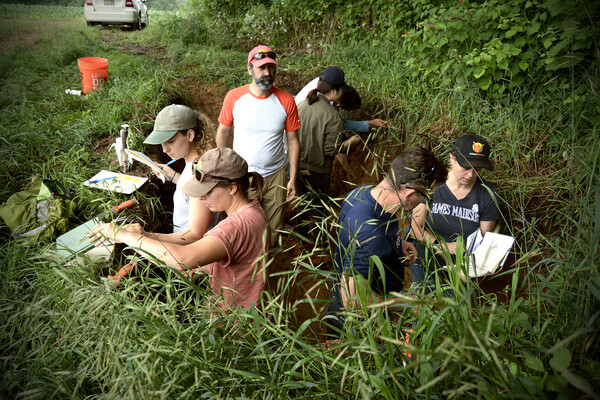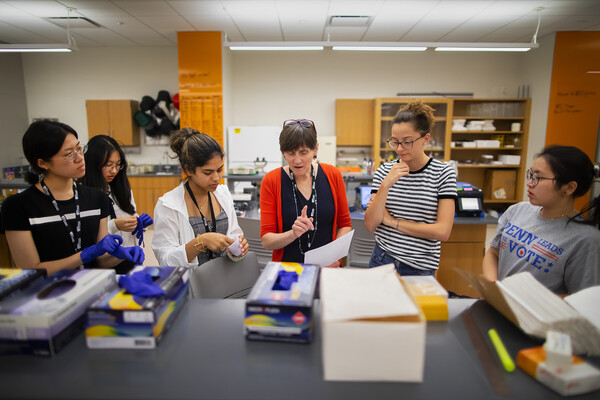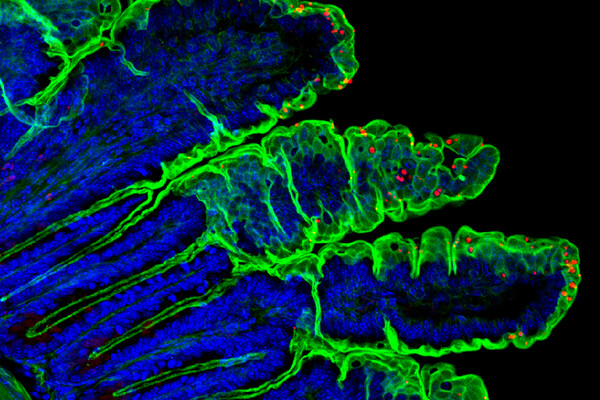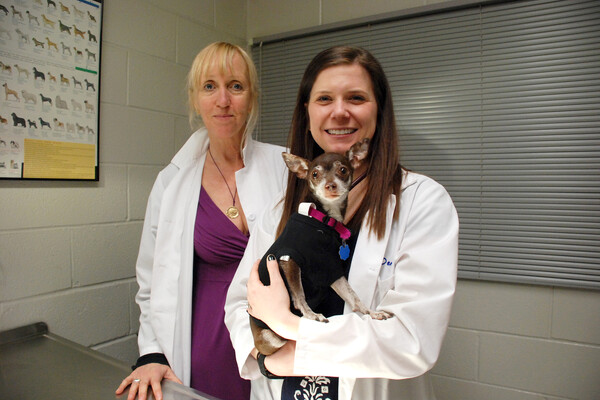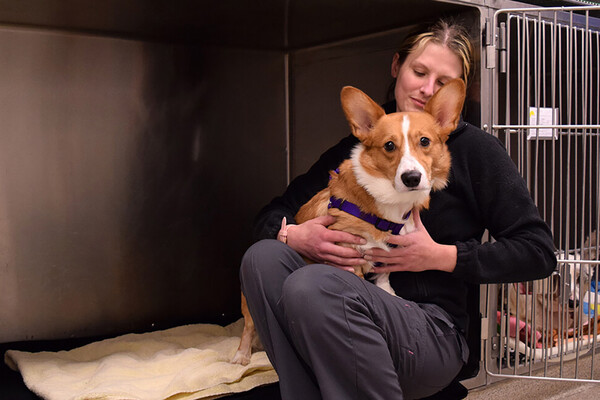5/18
School of Veterinary Medicine
100th puppy
An 8-week-old black Labrador retriever is the 100th puppy to enter the Penn Vet Working Dog Center research-based training program.
With summer field course, students get their hands dirty learning about soils
Taught by the School of Arts and Sciences’ Alain Plante, Field Study of Soils gives students skills and familiarity with different soil types, including some on University property.
Small horned dinosaur from China, a Triceratops relative, walked on two feet
Auroraceratops, a bipedal dinosaur that lived roughly 115 million years ago, has been newly described by an international team of researchers led by Peter Dodson of the School of Arts and Sciences and School of Veterinary Medicine.
Social solutions to antibiotic resistance
Research by sociologist Julia Szymczak of the Perelman School of Medicine is aimed at understanding, and eventually changing, behaviors that lead to the overprescribing of antibiotics.
Chemo is a go for treating equine lymphoma
New Bolton Center’s Daniela Luethy’s research on 15 horses with lymphoma concluded that chemotherapy had encouraging results. Her study poses opportunities for further research with more case control.
A new drug target for chemically induced Parkinson’s disease
An enzyme that modifies chemicals formed in the body by alcohol, tobacco, and certain foods may be a new target for treating Parkinson’s disease. The altered compounds may play a role in triggering the onset or advancing the progression of the neurodegenerative condition.
Meaningful science, with students at the helm
With CANINE, a collaboration between the School of Veterinary Medicine and the School of Arts and Sciences’ Biology Department, undergraduates are breaking new ground in immunology.
Novel model for studying intestinal parasite could advance vaccine development
The intestinal parasite Cryptosporidium causes frequent outbreaks in the U.S., and has been historically difficult to study. A novel model of infection from Penn Vet serves as a new tool to pursue a vaccine.
Better prognosticating for dogs with mammary tumors
For dogs with mammary tumors, a course of treatment can depend on a variety of factors, some of which may seem to contradict one another. A new system developed by Penn Vet’s Karin Sorenmo and colleagues can make determining a prognosis and making treatment decisions an easier task.
A roller coaster emergency for Dobby
By the time Dobby arrived at Ryan Hospital’s Emergency Room, he was in a bad way. The two-year-old Welsh Corgi had been vomiting off and on for a few days and was straining to urinate. “He also wasn’t eating,” says owner Zhi Peng Yang, who lives in Philadelphia and rushed Dobby to Penn Vet.
In the News
Fentanyl overdoses hit a surprising group of San Franciscans: the city’s dogs
Cynthia Otto of the School of Veterinary Medicine says that fentanyl can be absorbed across the mucous membranes in canine noses, causing dogs to face a life-threatening overdose.
FULL STORY →
Bird flu virus has been spreading in U.S. cows for months, RNA reveals
Louise Moncla of the Veterinary School of Medicine says that the bird flu virus is clearly being transmitted to cows in some way.
FULL STORY →
How to (responsibly) let your cat outside
James Serpell of the School of Veterinary Medicine says that some cats are perfectly happy within the confines of the home, while others have a greater desire to wander, explore, and investigate.
FULL STORY →
Cats aren’t jerks. They’re just misunderstood
James Serpell of the School of Veterinary Medicine says that the domestic cat suffers from its legacy of being a not-quite-wild animal on the margins of society.
FULL STORY →
Dog respiratory illness map update: Mystery disease spreads to more states
Deborah Silverstein of the School of Veterinary Medicine says that the dogs most at risk for respiratory illness are those with low immunity, such as young puppies, the unvaccinated, or older dogs, and potentially short-nosed breeds.
FULL STORY →



